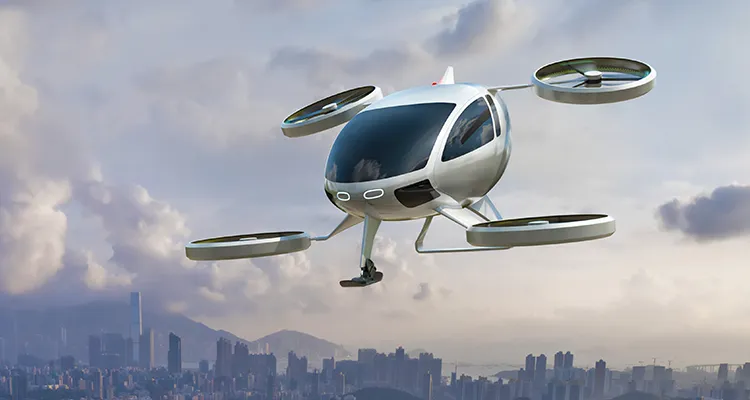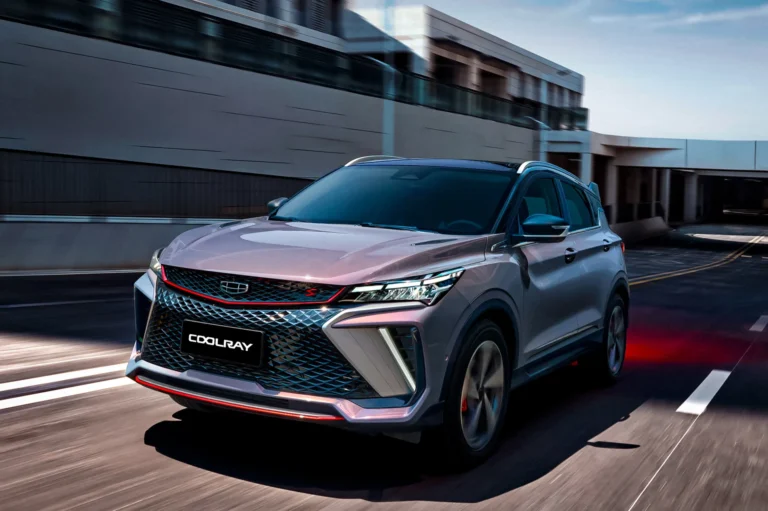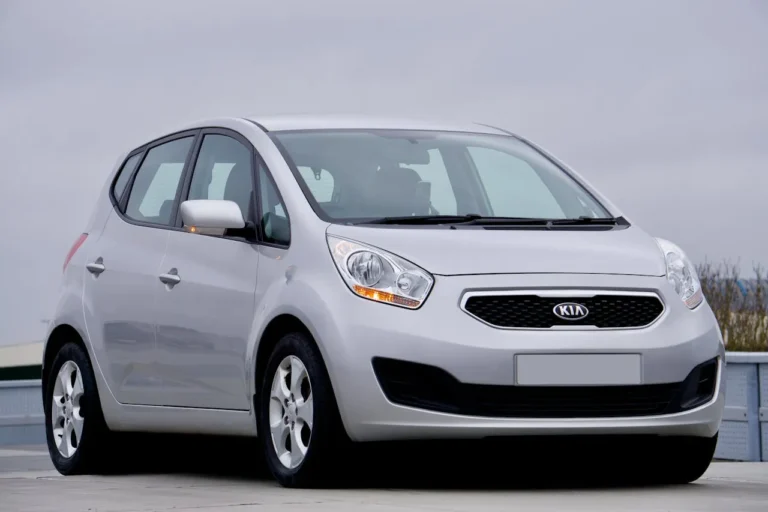
Vertical Aerospace Adopts Universal Fast-Charging Standard to Accelerate eVTOL Deployment
Vertical Aerospace a global leader in aerospace and technology pioneering electric aviation, has announced its adoption of the Combined Charging Standard (CCS) for its VX4 electric vertical take-off and landing (eVTOL) aircraft. By joining forces with BETA Technologies and Archer Aviation, Vertical is taking a significant step towards establishing a universal, fast-charging system for eVTOL aircraft. This initiative represents a major milestone in creating a standardized charging infrastructure that enhances efficiency, reduces costs, and accelerates the widespread adoption of electric aviation.
The Importance of Standardization in Electric Aviation
The adoption of CCS by Vertical Aerospace is a strategic move towards unifying the electric aviation industry under a common charging standard. Standardization in electric aviation is crucial for ensuring seamless interoperability between different aircraft manufacturers, operators, and infrastructure providers. The lack of a universal charging protocol has historically been a barrier to the rapid deployment of electric aircraft, leading to inefficiencies and higher operational costs.
By integrating CCS, Vertical’s VX4 eVTOL aircraft will benefit from faster turnaround times due to rapid battery charging and conditioning, making it a practical solution for shuttle operations and urban air mobility. This decision ensures that the VX4 will be compatible with the existing and expanding CCS charging infrastructure, including BETA Technologies’ growing network of charging stations.
Enhancing Interoperability and Infrastructure Development
Vertical’s alignment with the General Aviation Manufacturers Association’s (GAMA) call for standardized charging systems underscores the industry’s commitment to developing a scalable and commercialized electric aviation ecosystem. GAMA has emphasized the importance of a unified charging infrastructure in its white paper, “Interoperability of Electric Charging Infrastructure,” which highlights how standardization can reduce costs, streamline operations, and enhance accessibility for operators and manufacturers alike.
By adopting CCS, Vertical ensures that the VX4 eVTOL aircraft can seamlessly integrate into a shared charging network, benefiting customers and stakeholders by providing a consistent and reliable charging solution. This move is expected to drive further investments in charging infrastructure, paving the way for widespread eVTOL adoption across multiple regions and markets.
Industry Leaders Support the Move Towards Standardization
Several key industry figures have endorsed Vertical’s decision to adopt the CCS standard, recognizing its significance in the broader context of electric aviation’s growth.
Stuart Simpson, CEO of Vertical Aerospace, emphasized the importance of standardization in ensuring the long-term viability of electric aviation:
“With certification efforts involving five aviation authorities and customers across four continents, Vertical, together with BETA and Archer, choosing this standard means the industry has decided. Standardizing charging infrastructure is a crucial step in making electric aviation commercially viable. By adopting the CCS, we’re ensuring that VX4 can integrate seamlessly into a shared charging network, which is great news for our customers and reinforces our commitment to delivering a scalable eVTOL ecosystem.”
Chip Palombini, Charge Production Lead at BETA Technologies, echoed this sentiment, emphasizing the need for a robust and interoperable charging infrastructure:
“The true unlock of the next generation of aviation won’t come just from novel aircraft; it’s about a robust, interoperable charging infrastructure that can support all manufacturers. We are building a foundation that will allow eVTOLs to operate and scale safely, reliably, and efficiently across the globe, and Vertical Aerospace shares that vision.”
David Dunning, Director of Global Innovation & Policy at GAMA, further highlighted the benefits of a unified charging standard:
“A unified charging standard is important as it would assist in reducing costs, streamlining operations, and accelerating adoption of electric aircraft, which benefits manufacturers, operators, infrastructure providers, and passengers alike.”
Implications for the Future of eVTOL Operations
The adoption of CCS as a universal charging standard has far-reaching implications for the future of eVTOL operations. As more manufacturers and operators embrace this standard, the industry will see improved efficiency in charging infrastructure deployment, enhanced operational reliability, and increased consumer confidence in electric aviation technology.
One of the major benefits of CCS is its ability to enable rapid charging, which is essential for eVTOLs operating in high-demand environments such as urban air mobility networks. By reducing downtime and optimizing battery performance, CCS will allow eVTOLs to operate more frequently, increasing revenue potential for operators and making electric aviation more commercially viable.
Furthermore, standardization simplifies the infrastructure investment process for airports, vertiports, and urban mobility hubs. Rather than having to accommodate multiple proprietary charging systems, infrastructure providers can focus on deploying a single, standardized network that serves a diverse range of eVTOL models. This streamlined approach reduces complexity, enhances efficiency, and ensures long-term sustainability for the industry.
Challenges and Considerations in Implementing a Universal Charging Standard
While the adoption of CCS represents a significant leap forward for eVTOL development, there are still challenges to address in implementing a universal charging standard across the aviation sector.
- Infrastructure Investment: Widespread adoption of CCS will require significant investment in charging infrastructure across airports, vertiports, and urban mobility hubs. Governments, regulatory bodies, and private stakeholders must collaborate to ensure that adequate charging stations are available to meet the growing demand for eVTOL operations.
- Regulatory Compliance: As eVTOL technology evolves, regulatory authorities must establish clear guidelines and certification processes for charging infrastructure to ensure safety, reliability, and compatibility across different regions.
- Battery Technology Advancements: While CCS provides a standardized framework for charging, continuous advancements in battery technology may necessitate future updates to charging protocols. Ensuring that CCS remains adaptable to emerging battery innovations will be crucial for maintaining long-term interoperability.
- Global Standardization Efforts: Although CCS is gaining traction in the electric aviation sector, continued efforts are needed to align global regulatory bodies and industry stakeholders around a unified charging standard. Differences in regional regulations and infrastructure availability may pose challenges to achieving worldwide standardization.
Accelerating Electric Aviation Adoption
Vertical Aerospace’s decision to adopt the CCS fast-charging standard is a pivotal step toward making electric aviation a mainstream reality. By aligning with industry leaders and regulatory bodies, Vertical is helping to create a more interconnected and efficient eVTOL ecosystem.
The next phase of electric aviation will require continued collaboration between manufacturers, operators, and infrastructure providers to expand the charging network and optimize its performance. As more companies follow suit in adopting CCS, the industry will move closer to realizing the full potential of electric flight, reducing carbon emissions, and revolutionizing urban transportation.
In the coming years, investments in charging infrastructure, advancements in battery technology, and regulatory harmonization will play a crucial role in shaping the future of eVTOL operations. Vertical Aerospace’s commitment to CCS is a strong indicator that the electric aviation industry is moving in the right direction—towards a sustainable, scalable, and standardized future.
By taking a proactive approach to interoperability and industry-wide collaboration, Vertical Aerospace and its partners are paving the way for a new era of electric aviation that is accessible, reliable, and commercially viable for all stakeholders involved.







